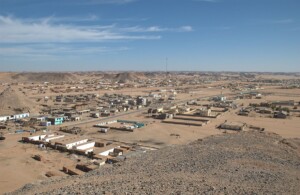June 3 massacre: Missing persons committee investigates Sudan morgue
Autopsy and re-autopsy of 168 unidentified bodies in the mortuary of the Wad Madani Teaching Hospital are over halfway, according to Osama Abdelrahman, Assistant Director General of the Ministry of Health in El Gezira.
 Poster for International Day of the Victims of Enforced Disappearance (SPA)
Poster for International Day of the Victims of Enforced Disappearance (SPA)
Autopsy and re-autopsy of 168 unidentified bodies in the mortuary of the Wad Madani Teaching Hospital are over halfway, according to Osama Abdelrahman, Assistant Director General of the Ministry of Health in El Gezira.
The Forensic Medicine Consultant Committee is undertaking investigations under the guidance of the Federal and State Ministry of Health, the Public Prosecution and the Missing Persons Investigation Committee in accordance with international health protocols.
The Missing Persons Investigation Committee was set up by Sudan’s Attorney General to investigate people missing since the start of the December Revolution, following the discovery of a mass grave in Khartoum three months ago. The mass grave may contain bodies of some of the people who are still considered as ‘missing’ after what is known as the Ramadan 29/June 3 massacre at the large sit-in in front of the army command in Khartoum in 2019, which caused the death of at least 127 people.
Abdelrahman confirmed on Friday that “these bodies were not discovered by chance,” as was reported on many social media sites, as they were known by the Ministry of Health and were preserved “based on a decision issued by the investigation committee prohibiting burying any unidentified bodies.”
He explained that the Forensic Medicine Consultant Committee is creating files on all the deceased, including allocating serial numbers and taking DNA samples and pictures. According to his statement, 100 bodies have been prepared for burial so far. Fractures and other injuries are “easily identifiable” on some of the bodies.
Yesterday was planned to be the last day of autopsy and re-autopsy, after which a report will be submitted to the relevant authorities. The Missing Persons Investigation Committee will compare any new data with existing data they have, according to a statement on Thursday.
‘Negligence’
Abdelrahman also called for investigations into the persons or agencies that brought the bodies to the morgue.
In the process of sorting the bodies, 11 identity cards and other papers were discovered in their clothes. According to the statement, this suggests negligence when categorising these bodies as unidentified.
The statement also called into question the claim by authorities that the bodies had decomposed when the cooling unit broke down earlier this month. The condition of the bodies suggests that the bodies have been decomposing much longer.
He criticised the lack of disclosure of any details of the date of arrival of the bodies in the mortuary's records, as it was not possible to obtain any data or instigative record containing pictures of the bodies at the moment of their arrival, only the morgue management reported that they were received between 2019 and 2020.
On October 9, 2019, the Sudanese Doctors Central Committee accused several hospital mortuaries of providing misleading information to the families of missing protestors. The doctors accuse the mortuaries of denying that bodies were present at the morgues while in fact they were.











 and then
and then